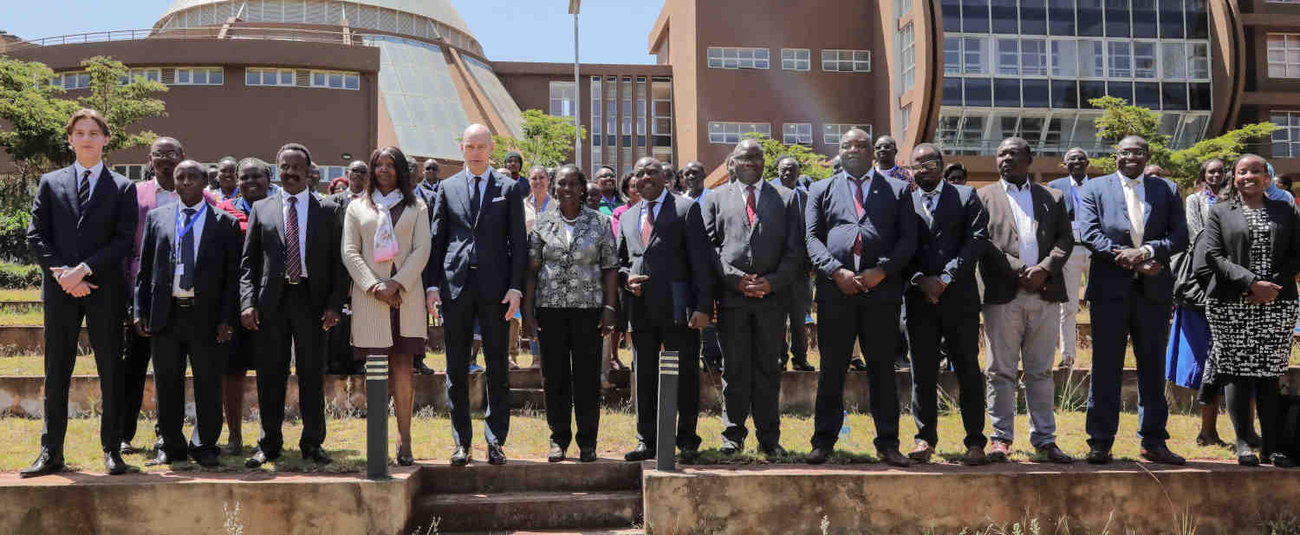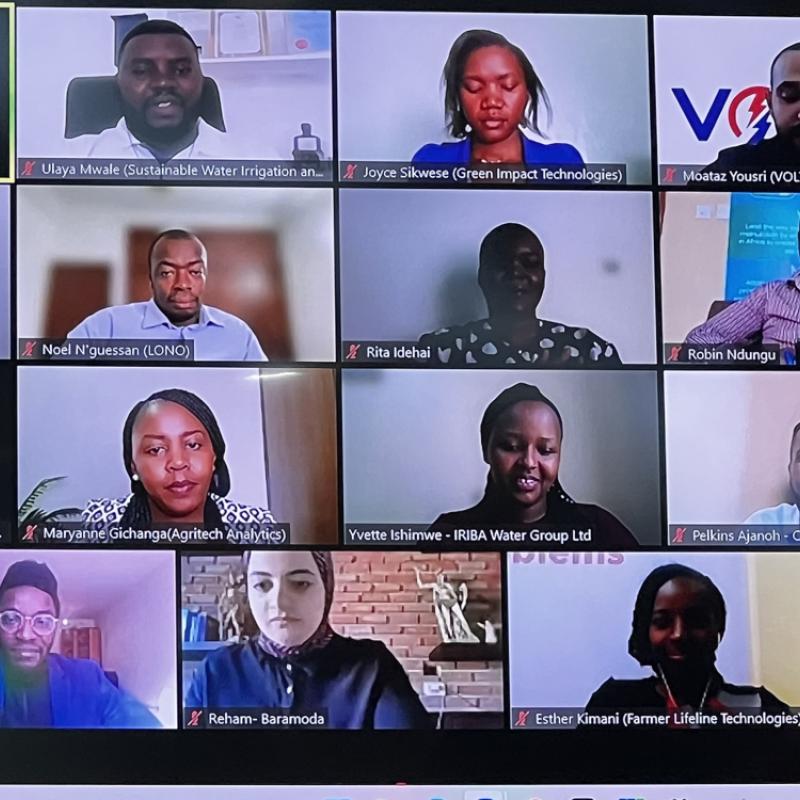
AAAP in the Media
Displaying 1 - 4 of 4
Liberia -Program for Advancing Youth Entrepreneurship Investment (PAYEI)
In Liberia, the unemployment rate is estimated at 85% with the youth (15-35 years) accounting for 75%. The youth population (15-35 years) is growing 3% per annum on average and currently makes up nearly 40% of the country’s total population of about 5.2 million. Out of the young working population, 90% face vulnerable or irregular employment. Youth, not in employment, education, and training (NEET) amount to 45% of youth (15-24 years).
Employment creation in Liberia faces extraordinary challenges. A significant number of youths are engaged in the development of MSMEs – or aspire to be – yet many of them operate in the informal sector with low productivity due to limited access to financial and non-financial services which are hindering their growth. While limited education and industry and business skills may be impeding youth entrepreneurship and MSME development, weak infrastructure, limited finance, low institutional capacity, and other structural issues are limiting the prospects for rapid and sustainable MSME development and the generation of jobs
The overarching goal of the project is to foster an optimal environment for the development and promotion of youth entrepreneurship and youth-led businesses in Liberia by establishing sustainable vehicles and mechanisms to deploy financial services and non-Financial Services. This is achieved through:
- Establishing governance and stewardship for entrepreneurship
- Strengthening support to entrepreneurship and SME development
- Unlocking accessible financing to young entrepreneurs, youth-led growing small businesses and established SMEs.
- Conducting labor market assessment to identify potential adaptation jobs using an established adaptation taxonomy
- Building capacity in enterprises for climate resilient jobs and entrepreneurial opportunities in adaptation by embedding training into local institutions such as TVET centres
- Propose recommendations to create adaptation jobs through existing MDB investments in the country
- Create at least 1050 direct jobs (including 30% climate adaptation jobs)
- Support at least 300 Youth-led enterprises
- At least 1000 youth to be trained in entrepreneurship and business development to secure formal work or self-employment
- Improved support systems and frameworks for entrepreneurship that ensure young entrepreneurs, youth-led growing small businesses, and established SMEs receive the necessary guidance, mentorship, and resources to thrive
- Enhanced ecosystem that provides comprehensive support to entrepreneurs and SMEs. This includes access to business development services, training programs, networking opportunities, and technical assistance
USD 17 Million (African Development Bank, OPEC, EU)
Climate risk regulation in Africa’s financial sector and related private sector initiatives
Extreme weather phenomena such as rising temperatures and the increasing frequency of droughts and floods are affecting lives and livelihoods in Africa. According to the Global Climate Risk Index 2021,1 five African countries ranked among the 10 countries most affected by extreme weather in 2019: Mozambique (first), Zimbabwe (second), Malawi (fifth), South Sudan (eighth), and Niger (ninth).
Global Center on Adaptation, AfDB host regional forum on the future of resilient food systems in Africa

The Global Center on Adaptation (GCA) in collaboration with the African Development Bank and the Wangari Mathai Institute have concluded a three-day regional forum on the future of resilient food systems in Africa.
The Forum, called the Future of Resilient Food Systems in Africa – AAAP Digital Solutions for a Changing Climate provided training aimed at strengthening the capacity of stakeholders from across Eastern Africa to design and implement solutions to improve food security and climate resilience and to facilitate knowledge sharing among farmers on approaches to scale up the use of Digital climate-informed advisory services, or DCAS.
Digital climate-informed advisory services are tools and platforms that integrate climate information into agricultural decision-making. These services range from digital mobile apps, radio, and online platforms to digitally enabled printed bulletins based on climate models and extension services that utilize climate information platforms.
DCAS offers crucial opportunities to build the resilience of small-scale producers in the face of worsening climate change impacts. From seasonal forecasts to pest advisories, effectively designed services provide producers with the resources to adapt to climate shocks and plan for new climate conditions.
Globally, more than 300 million small-scale agricultural producers have limited or no access to such services because service provision is still fragmented, unsustainable beyond project cycles, and not reaching the last mile.
Speaking at the opening ceremony of the forum, Professor Patrick Verkooijen, CEO of Global Center on Adaptation called for urgent financial support to put Africa on the path of food sovereignty.
“Africa needs urgent support to scale up the implementation of adaptation solutions that are already yielding good results for irrigation, developing drought-resistant seeds, crops and livestock diversification, “ he said.
“Through the African Adaptation Acceleration Programme, AAAP, we are rolling out a $350 million project to build resilience for food and nutrition security in the Horn of Africa towards mobilising new digital climate technology for market information, insurance products, financial services that can and must be tailored to smallholder farmers’ needs”, he added.
Speaking on behalf of the African Development Bank’s East Africa Regional Director General, Nnenna Nwabufo, Dr Pascal Sanginga, Regional Sector Manager for Agriculture and Agro-Industries noted that the forum was timely, coming hot on the heels of the recently concluded Dakar 2 Feed Africa-Food Sovereignty and Resilience summit , organised by the African Development Bank.
“The Africa Adaptation Acceleration Program (AAAP) is already contributing to closing Africa’s adaptation gap by supporting African countries to make a transformational shift in their development pathways by putting climate adaptation and resilience at the center of their policies, programs, and institutions. There is no doubt that AAAP will be a strong component of the Country Food and Agricultural Delivery Compacts to accelerate the transformation of Africa’s food systems and build a more resilient Africa”, he said.
Professor Stephen Kiama Gitahi, Vice Chancellor of the University of Nairobi, reiterated the relevance of the forum pointing out that 70% of the population in Eastern Africa live in rural areas and depend on agriculture for their livelihoods. He encouraged the trainers to simplify the modules in a manner that removes the fear for technology and accelerate adaptation for rural farmers. Citing the legacy of late Professor Wangari Maathai he stated:
“We acknowledge that gaps exist on climate adaptation in the rural communities and those can be smartly bridged with the use of digital smart agriculture and climate innovations to create great conservation impact in our region.”
The forum brought together stakeholders from ministries of agriculture, related government agencies, public research institutions, farmer organizations, universities and non-profit organizations working on climate adaptation for food security in Eastern Africa. These included participants from Djibouti, Eritrea, South Sudan, Burundi, Rwanda, Mauritius, Tanzania, Seychelles, Sudan, Ethiopia, Rwanda and Kenya.
About Global Center on Adaptation
The Global Center on Adaptation (GCA) is an international organization which works as a solutions broker to accelerate action and support for adaptation solutions, from the international to the local, in partnership with the public and private sector. Founded in 2018, GCA operates from its headquarters in the largest floating office in the world, located in Rotterdam, the Netherlands. GCA has a worldwide network of regional offices in Abidjan, Cote d’Ivoire; Dhaka, Bangladesh and Beijing, China.
About the Wangari Maathai Institute, University of Nairobi
The Wangari Maathai Institute (WMI) for peace and environmental studies is a global centre for teaching and research on environmental management, governance, peace and conflicts and the nexus between peace and democracy. The centre was founded in 2009 with the support of the Government of Kenya (GoK), the African Union(AU) and the African Development Bank(AfDB) to celebrate and immortalize the work of the late Nobel Laurete
Prof.Wangari Maathai who was a global champion on environmental conservation and governance. The centre trains future leaders and Champions for environment. The Centre is located in the serene environment in Upper Kabete suburb of Nairobi City.
